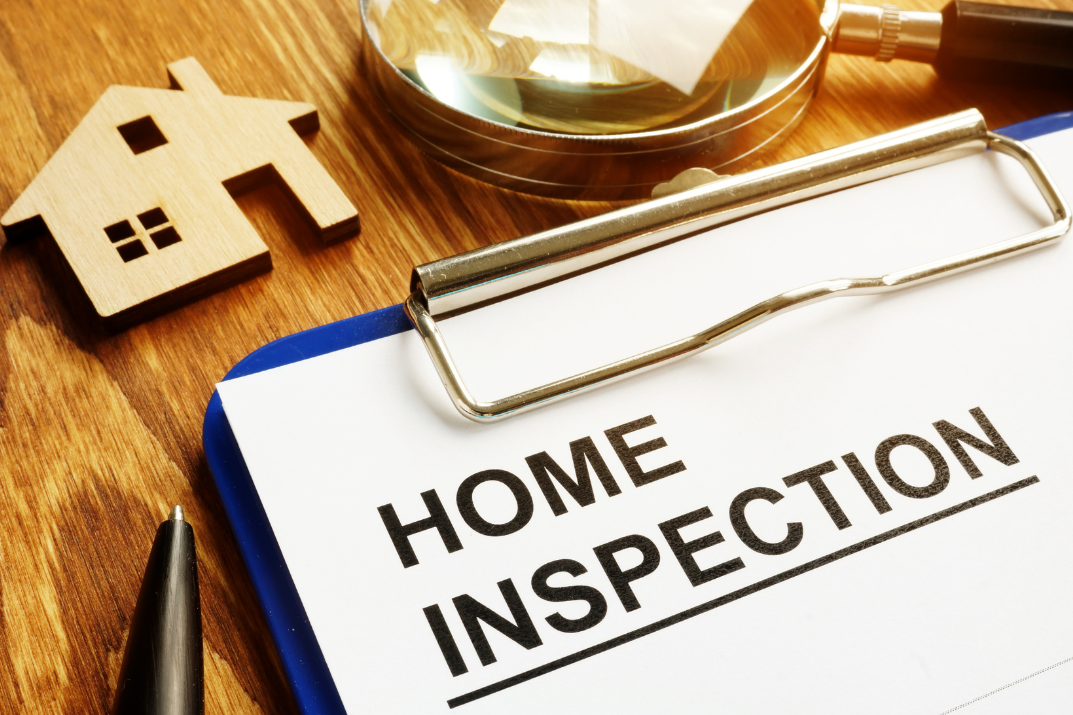What To Expect During Your Home Inspection

Buying a home is a significant financial investment, and a home inspection is a crucial step in the process. A home inspection provides valuable insights into the condition of the property, helping you make an informed decision about your purchase. We’re here to guide you through what to expect during your inspection period so you can approach the process confidently.
Once a buyer is under contract to purchase a home, their inspection period begins. An inspection period (or “due diligence” period) is a specific number of days that has been agreed upon by the buyer and seller allowing the buyer to examine the condition of the home and still obtain their earnest money in the event the contract is terminated.
Buyers typically hire a professional home inspector to assess the house from top to bottom and provide them with a complete report of what condition the house is in. Their goal is to identify any issues or potential problems that could impact your decision to buy the property. Your real estate agent should be able to provide you with quality recommendations of home inspectors that can help.
The duration of a home inspection can vary depending on the size and condition of the property. On average, inspections take about 3 hours to complete. While each inspector will vary, typically they'll request you to be present only for the last 45 minutes to an hour so that they can show you their findings in person.
What your home inspector should be looking for:
-
Exterior Inspection: The inspector will examine the roof for signs of damage or wear, check the siding, windows, doors, and inspect the landscaping. Drainage and grading around the property will also be assessed to ensure proper water flow away from the house.
-
Interior Inspection: Inside the house, the inspector will examine every room. They'll look for signs of water damage, structural issues, and potential safety hazards. Electrical outlets, switches, plumbing fixtures, and appliances will be tested for functionality.
-
Basement and Attic: The basement and attic are critical areas that inspectors examine thoroughly. They'll check for proper insulation, ventilation, and signs of water intrusion. In the basement, the foundation, flooring, and any visible wiring or plumbing will be assessed.
-
Mechanical Systems: The home inspector will also evaluate the HVAC (heating, ventilation, and air conditioning) systems. This includes checking the furnace, air conditioner, ductwork, and thermostat. Additionally, they'll examine the plumbing system for leaks, proper water pressure, and drainage issues.
After the inspection, the home inspector will provide you with a detailed report outlining their findings. This report will include photos and descriptions of any issues discovered, along with recommendations for repairs or further evaluations. Because of the amount of detail included, the report can often be quite lengthy. Do not let the length of the report scare you! The home inspector’s job is to list every single detail so that you are informed about the home you’re potentially purchasing.
Sometimes a home inspector will recommend having a licensed professional further inspect something they found. A home inspector is not an electrician, plumber, structual engineer, etc. They can only advise within their area of expertise. For example, if the home inspector found a concern with the eletrical, they will most likely recommend having an electrician do a more in depth inspection.
Once you have obtained the full report, you'll work with your real estate agent to discuss areas of concern and how you would like to move forward with your contract. If minor issues are identified, you might choose to proceed with the purchase as planned. For more significant concerns, you may negotiate repairs or ask the seller to address the issues before finalizing the deal.
Contact us for any real estate related questions or recommendations on a reliable and professional home inspector!

